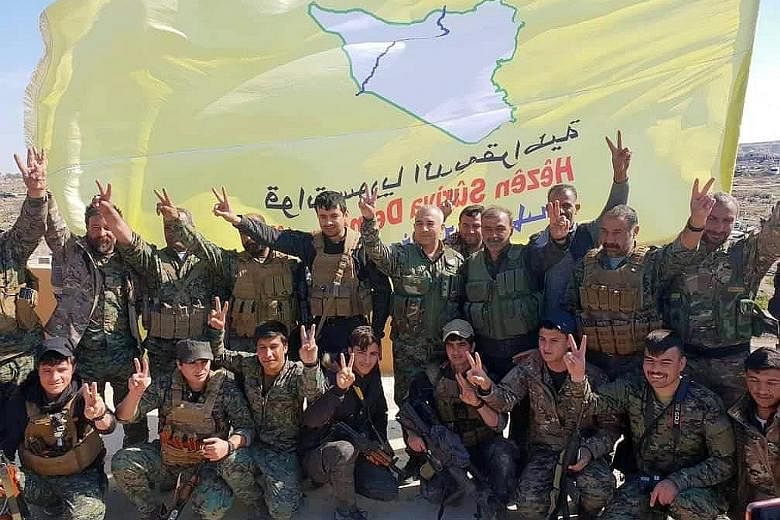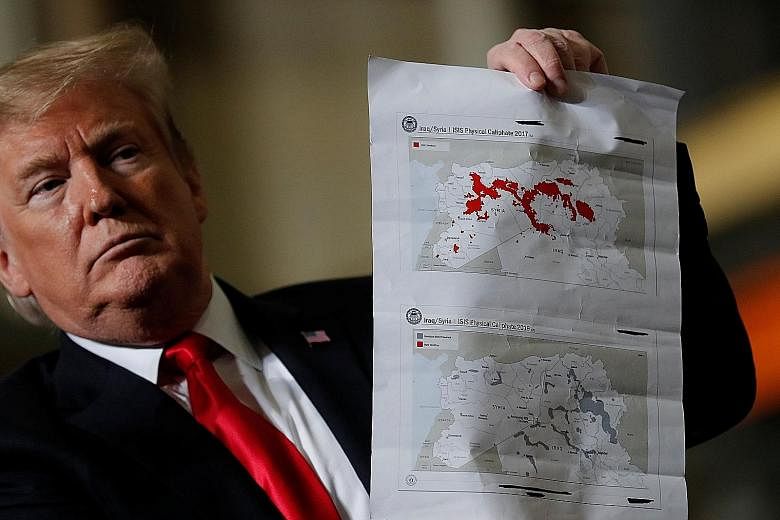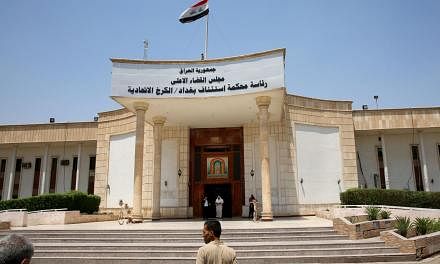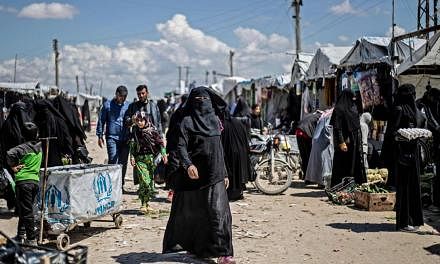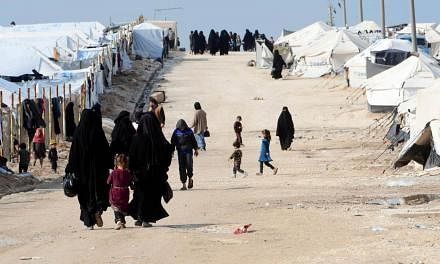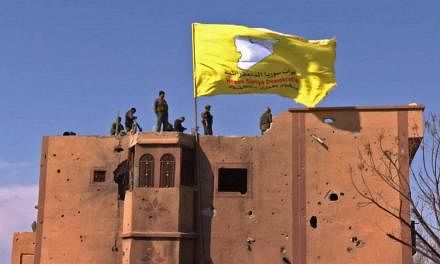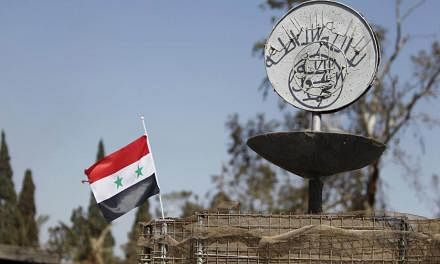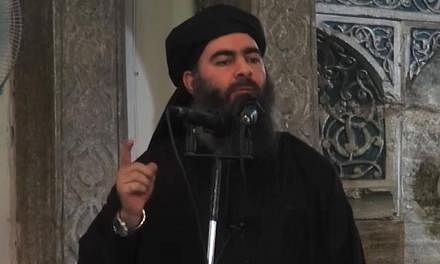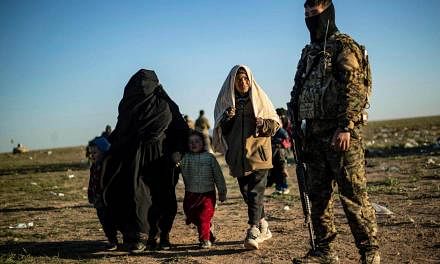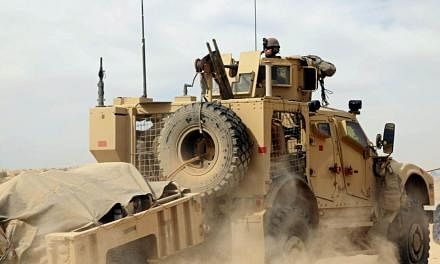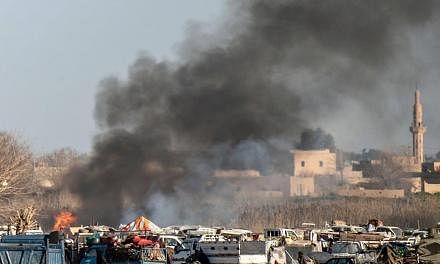BAGHDAD • Five years after the Islamic State in Iraq and Syria (ISIS) militant group swept across Iraq, Baghdad is bidding to reclaim its role as a regional player while walking a tightrope between rival backers Iran and the United States.
The country is seeking to position itself as a "bridge" between rival powers in a region beset by deep divisions, said Iraqi political scientist Ihssan al-Shemmari.
Following more than a decade of international sanctions and 15 years of conflict - including the push to roll back ISIS, which ended over a year ago - violence in Iraq has dropped sharply.
As calm steadily returns, international leaders are increasingly looking to Baghdad as an important actor. Top officials from both the US and Iran, along with King Abdullah II of Jordan and senior figures from various Western powers, have visited the oil-rich country since January.
An invitation has been extended to Turkey's President Recep Tayyip Erdogan, according to a government source. French President Emmanuel Macron has said he will visit Iraq in the coming months, after France announced in January that it would pump in €1 billion (S$1.5 billion) to help the war-ravaged country rebuild.
An Iraqi official, requesting anonymity, said Baghdad has taken on the role of "messenger" in a fractured region. The country has tried to mediate between Qatar, a key backer of Syrian rebels, and Syrian President Bashar al-Assad's regime as Damascus presses to return to the Arab League.
-
$1.5b
-
Amount which France announced in January it would pump in to help war-ravaged Iraq rebuild.
Iraq's National Security Adviser Faleh Fayyadh has also visited the Saudi capital Riyadh "to deliver a message from Turkey, Syria and Iran about new arrangements in the region", the official told Agence France-Presse.
Baghdad has managed to juggle ties with Washington, head of an international anti-ISIS coalition, and Teheran, which backed Iraqi paramilitary groups that played a key role in expelling the ISIS militants.
As a result, Iraq has been "heavily courted", said Mr Karim Bitar of the Paris-based French Institute for International and Strategic Affairs.
But he added that the country has become "a political, economic and diplomatic battleground" at the expense of post-war reconstruction and the authority of the state.
Despite the hopes of some officials, Mr Shemmari cautioned that Baghdad may find major obstacles at home hindering its international ambitions.
Domestic rifts and US-Iran tensions have grown "far too deep for Iraq to take the initiative" on regional affairs, he said.
The government is deeply divided and an anti-US bloc controls most seats in Parliament.
Iraqi lawmakers have tabled a Bill calling on US troops to withdraw from the country, prompting an urgent visit by acting Pentagon chief Patrick Shanahan.
Mr Shanahan "asked the Iraqi Prime Minister about his stance on a possible coalition against Iran", said the government official in Baghdad.
Such a stand would shatter Baghdad's hopes of pursuing a "zero-problems foreign policy", warned Mr Fanar Haddad, an Iraq expert at the National University of Singapore. Any missteps in this delicate balancing act could prove costly, potentially putting Iraq's "recent diplomatic gains" at risk, he said.
Meanwhile, US President Donald Trump hailed the end of the so-called ISIS caliphate on Saturday, vowing the US would remain "vigilant" against the diehard militants.
The victory of the fighters of the US-backed Syrian Democratic Forces in the remote village of Baghuz in Syria, where ISIS made its last stand, capped a deadly six-month operation against the final remnants of forces in ISIS-controlled territory that once stretched across a vast swathe of Iraq and Syria, with seven million people in its sway.
"We will remain vigilant... until it is finally defeated wherever it operates," Mr Trump said in a statement. "The United States will defend American interests whenever and wherever necessary. We will continue to work with our partners and allies to totally crush radical Islamic terrorists."
Mr Trump also had a warning for young people who can easily be swayed. "To all of the young people on the Internet believing in ISIS' propaganda, you will be dead if you join. Think instead about having a great life."
AGENCE FRANCE-PRESSE
